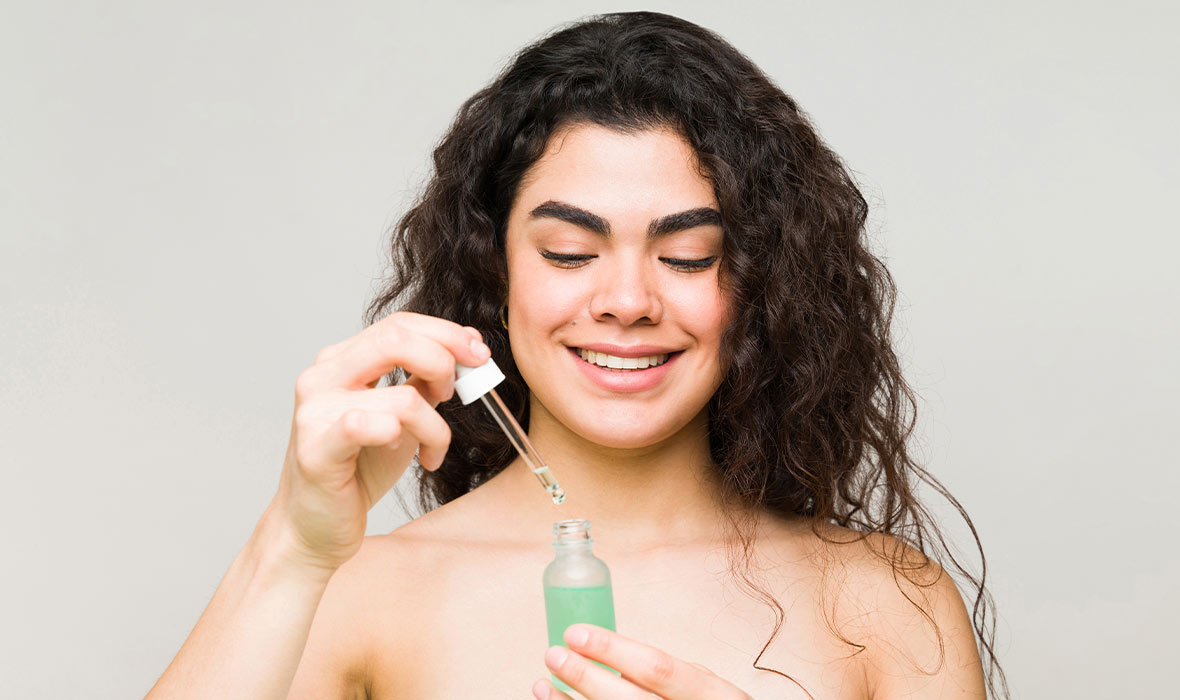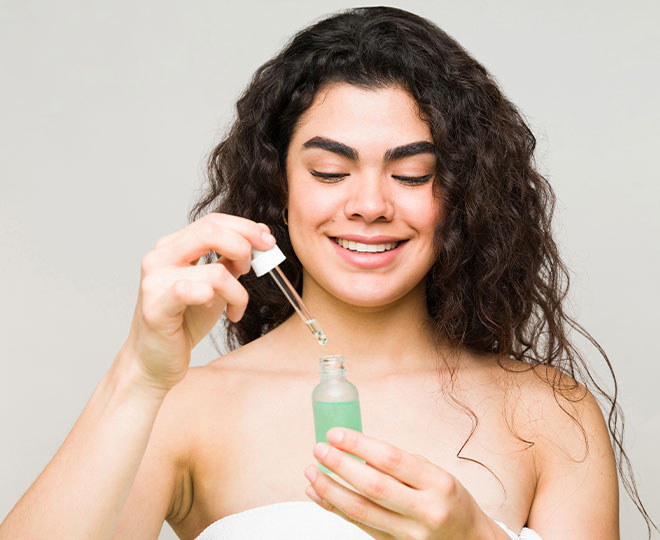Glycolic acid has been one of the most popular ingredients in skincare for decades. But what does glycolic acid do, and why is it so popular? Read on!
What is glycolic acid?
Synthetically derived from sugar cane, glycolic acid is:
- An alpha hydroxy acid (AHA), which helps chemically exfoliate away dead skin cells
- A humectant, a substance that helps retain moisture by attracting water molecules to itself
Glycolic acid benefits
The main thing this superstar ingredient is used for is to help unclog pores.
As you may know, dead skin cells mix with excess sebum (aka oil) on our skin and create clogged pores. Also known as blackheads and whiteheads, clogged pores are a form of non-inflammatory acne and the building blocks of inflamed acne.
Glycolic acid helps clear away those dead skin cells while also helping to loosen that built up sebum — both of which contribute to clogged pores.
While beta hydroxy acids (BHAs) are oil-soluble, AHAs like glycolic acid are water-soluble which helps your skin retain moisture while the acid sloughs away all that oil and dead skin.
Plus, when acne-prone skin gets too dry, the body will overproduce oil to compensate. And too much oil production can lead to acne. So the moisture retaining benefits of glycolic acid benefit those with acne-prone skin as well. It’s a one-two punch!
Concerned about putting acid on your face? It’s not as dramatic or dangerous as it sounds…
Is glycolic acid a strong acid?
It can be when used by professionals, but glycolic acid in is relatively gentle and completely safe to use. Although your skin cells will gently shed over time with continued use of glycolic acid, you shouldn’t visibly peel as you would with a prescription-strength solution or a professional chemical peel.
More benefits of glycolic acid for skin
Helps reveal a fresh layer of brighter skin.
Think of glycolic acid as the ingredient that helps loosen the tightly-packed bonds of the rough layers of dead skin cells (including overly-pigmented dark cells) so they slough away more easily. And when a fresh layer of skin is revealed, it will look brighter, smoother, and clearer.
Absorbs well into skin.
Glycolic acid molecules are known to be the smallest of all the AHAs. So, they can be effectively absorbed into the skin much better than acids with larger molecule sizes, such as lactic acid.
When to apply glycolic acid
As with any new skincare ingredient, start slowly. Try applying products with glycolic acid 2-3 times a week to see how your skin reacts, then work up to daily and nightly applications.
Glycolic acids and all other AHAs make your skin a bit more sensitive to the sun’s UV rays, so regardless of how often you’re applying it, make sure to use sunscreen every day to protect your exfoliated skin!
Where to apply glycolic acid
You can apply glycolic acid to your entire face for an even exfoliation. But of course, avoid your eyes, mouth and lips. You can even apply it on your chest or back, sparingly.
Potential side effects of glycolic acid
Light stinging or redness is completely normal until your skin is conditioned to glycolic acid. Thankfully, this usually goes away in a few minutes. If you do feel a more intense stinging, splash or pat your skin with water, which will neutralize the effects of the glycolic acid. If any of that irritation persists, make sure you stop using the product and consult with your doctor.
Must-have products with glycolic acid
Whether you prefer your glycolic acid in an exfoliating cleanser or revitalizing toner, here are our recommendations for incredibly effective products and results. Get the pore-perfecting benefits of glycolic acid in:
- Skin Smoothing Exfoliator, part of the Proactiv+ 3-step system: This creamy, cushiony exfoliator is formulated with tiny exfoliating beads and glycolic acid, which work together to gently resurface the skin and reveal a smoother, softer-looking complexion. It also features benzoyl peroxide to clear up breakouts and help keep new ones from forming.
- Proactiv Revitalizing Toner, part of the Proactiv Solution 3-step system: This botanical-rich, alcohol-free toner helps keep pores from clogging by removing excess surface oil and dead skin cells. It features glycolic acid to gently exfoliate away dead skin cells, revealing healthy, glowing skin.
The bottom line
Glycolic acid is the star of the AHA category. It can help you shed dead skin cells, which will keep your pores from getting clogged. Incorporate it slowly but steadily into your routine and use sunscreen daily as you go!






